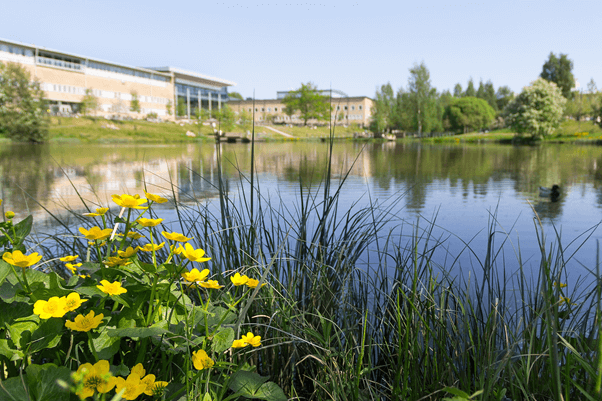
Edith Clarke, Mary Engle Pennington, Maria Klawe, Lydia Villa-Komaroff, Rosalind Franklin — what do all these women have in common?
They are all credited with bringing STEM (that’s Science, Technology, Engineering, and Mathematics) to the forefront and paving the way for more women to break glass ceilings in these disciplines.
Clarke was the first female electrical engineer. Pennington discovered the world’s first safety standard for milk storage. Klawe increased the number of women studying computer science at her faculty to 40%. Villa-Komaroff found that bacteria can be engineered for insulin production and Franklin provided critical research for the DNA structure.
Yet, as qualified and impressive as they are, they are outliers. Women are significantly underrepresented in STEM fields — only 28% are women — and receive lower pay than men.
If you seek to narrow this gap and change this trend, set your sights on universities that will offer the time, effort and resources to ensure your success. These institutions have role models, plus academic, social and professional opportunities for women in STEM. Check out our pick of universities in Europe that best fit this description:
Coventry University
If the STEM industries are looking for women talent, Coventry University graduates are candidates.
After all, they come from an institution with a long string of accolades: #1 Modern University in the Midlands (Guardian University Guide 2021), University of the Year for Student Experience (The Times and Sunday Times Good University Guide 2019), Gold for Outstanding Teaching and Learning, to name a few. Here, 97% of students found jobs or continued to further studies within six months after graduation (DLHE survey, UG UK, 2016/17, published in 2018).

Source: Coventry University
In the Universities two dedicated engineering and computing buildings, students evolve into masters in their field of study, as well as gain further personal, cultural and work experiences through taught master’s programmes such as Computer Science; Cyber Security; Data Science/Data Science with Computational Intelligence; and Management of Information Systems and Technology.
Aspiring female postgraduate students are welcome to pursue these programmes here. Many graduates remember their Coventry experience as one defined by making lifelong friends, being inspired by dedicated teachers and having opportunities to contribute.
“I found inspiration and was amazed by the possibilities and potential that could be achieved when applying the taught content. I loved what I studied, and it helped me keep going, the idea that with this knowledge, I would be able to improve lives, experiences or even the world itself,” shares MSc Data Science graduate Toma Petraviciute.
Umeå University
Umeå University, the largest institution of higher education in northern Sweden, has over 36,000 students from 60 countries — 66% are females. It recently won the Nobel Prize for Chemistry in 2020 and has 44 international programmes — at least 40 programmes are taught in English.

Umeå University’s peaceful campus. Source: Umeå University, Facebook
The university’s interdisciplinary collaborations span over 2,000 researchers working in top national and international research teams. Students can access top-range facilities and equipment at Umeå such as High Performing Computing Centre North, Integrated Science Lab and NanoLab.
Students like Adriele Pradi recall how her teachers at Umeå made her study experience enjoyable with their teaching expertise and subject knowledge.
“The lecturers are very friendly and supportive. I like the way they focus on creating self-reliance and independence in the students,” Cartrine Anyango, another student from Nairobi, shares.
For international students, the Buddy System Programme helps them meet and mix with domestic students to learn from each other and transition better into university life.
Master’s programmes offered here include Computing Science, Statistics and Data Science and IT Management.
University of Edinburgh
The University of Edinburgh is world-renowned for many things: ranked #16 in the QS World University Ranking 2022, fourth in the UK for research power, and famous alumni that include Nobel laureates and Olympic athletes.

Sunset at the University of Edinburgh’s campus. Source: The University of Edinburgh, Facebook
The University of Edinburgh is also ranked among the top 20 most international universities, is a member of Universitas 21 research network as well as the European networks: Coimbra Group, League of European Research Universities (LERU) and Una Europa alliance.
Besides being located in one of the world’s top 20 student cities, Edinburgh, the university also offers outstanding facilities for learning including well-stocked libraries and 30 computer labs.
“Due to its superior ratings, cutting edge learning environment, fascinating postgraduate programme and impressive staff, the university greatly appealed to me,” Zia Barnard, a Biotechnology graduate from Saint Lucia, says.
A wide array of taught master’s programmes are offered here. This includes the MSc Computer Science, MSc Data Science and the MSc Cyber Security, Privacy and Trust.
BRNO University of Technology
As the biggest engineering university in the Czech Republic with 19,000 students, BRNO University of Technology — ranked among 2.3% of the world’s best universities — has some of the best engineering equipment within excellent research centres such as the Central European Institute of Technology.

Brno in winter. Source: BRNO University of Technology, Facebook
Being located in Brno translates to affordable living costs and close proximity to technology companies for students. Since Brno is dubbed Europe’s Silicon Valley, students can participate in numerous foreign internships and international project collaborations — 95% of graduates easily find jobs within six months.
BRNO University offers English-taught master’s programmes such as Applied Sciences in Engineering, Industrial Engineering, Information Technology, and Environmental Sciences and Engineering.
Finally, BRNO has an interesting affiliation with women in STEM — Zdena Rábová pioneered IT in Czechoslovakia and worked at the Faculty of Information Technology at BRNO. The Summer Schools (F)IT for Girls is also offered at BRNO University for high school female students who want to learn IT.
*Some of the institutions featured in this article are commercial partners of Study International







